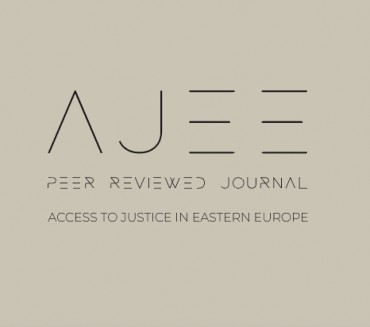Summary: 1. Introduction. – 2. Human Rights and the United Nations. – 3. Human Rights – The Foundations of the United Nations Organisation. – 4. Albania’s Partnership with the United Nations and the European Union in Defence of Human Rights and Peace. – 5. Conclusions.
Background: Every millennium, decade, and century, as well as every passing day, humanity wakes up with a dream of a ‘new world’, a world without wars and bloodshed. Despite this thousand-year-old dream, wars and their devastating consequences hang menacingly over humanity’s head like the sword of Damocles. For this reason, wars have been and will remain a key focus of researchers and philosophers. By studying the numerous causes and consequences of war, the necessary measures to guarantee security and peace worldwide can be determined. Although human society strides towards prosperity, the likelihood of war has not diminished but continues to threaten, with unparalleled ferocity, the existence of human life, peace, and security. The numerous agreements and treaties, both bilateral and multilateral, between different states have only temporarily avoided the outbreak of conflicts and wars. Therefore, the concepts of peace, defence, and the prevention of war remain at the centre of research today. Research works in these fields are geared towards a universal idea: ‘the protection of basic human rights’.
Methodology: This paper’s research methodology involves analysing data on the role of the UN as a defender of freedom and human rights. To achieve this, an extensive literature review was conducted. The review covers literature sources in both Albanian and foreign languages, written by well-known authors and provides a large amount of information and thoughts on the topic under consideration. The authors of some of the used works include Thomas Hobbes, Jean Jacques Rousseau, Immanuel Kant, John Locke, Brian Tamanaha, Alexis Tocqueville, and Servet Pëllumbi. The research was conducted step-by-step and argument-by-argument using the logic of reasoning and the analysis of ideas. The relevant research works relate to the UN’s role as a provider and guarantor of human rights and freedom.
Results and Conclusions: In the opinion of the UN, the concept of democracy is closely related to the concept of protecting peace, freedom, and human rights. This is also the reason why the UN cannot remain indifferent in the face of cases of violation of freedoms and human rights under the pretext of respecting ‘state sovereignty’. The UN is today’s most important and powerful organisation for protecting human freedoms and rights, world peace, and international security. Based on the above discussion, a democratic society is nothing but the result of new relations between the power and freedom of an individual. ‘Human rights and freedoms’ do not constitute a mere bureaucratic formula but a request of the people for the development of the society in which they live. They resemble a ‘spiral’ that has only ascended since various theorists first presented their ideas on ‘human rights’. Infringement on human rights would simultaneously mark the infringement and the end of democracy itself.

